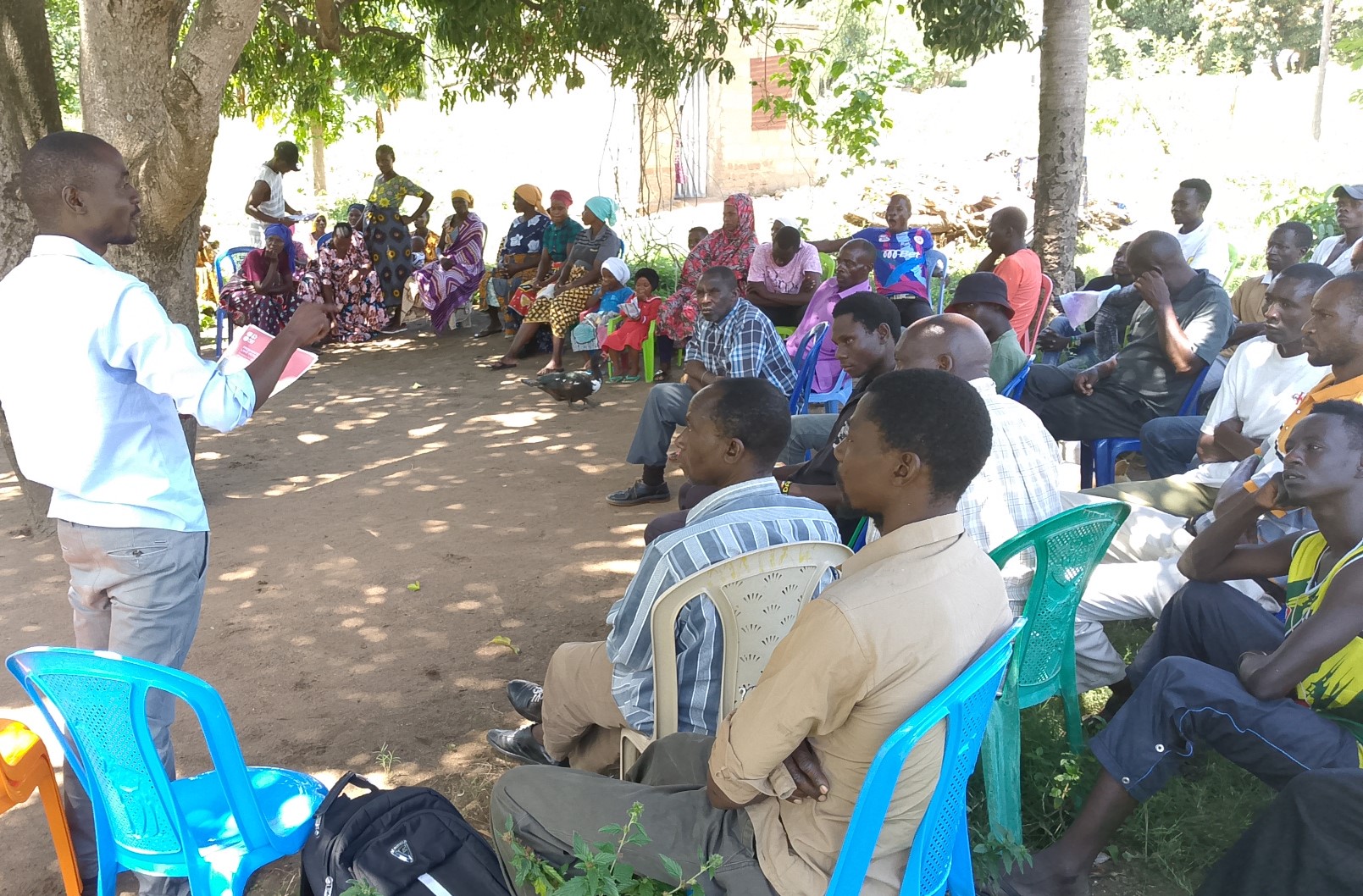Community Conservation Areas in Lake Victoria, Mara Bay-KBA
Our mission to establish Community Conservation Areas (CCAs) in Lake Victoria has successfully led to the creation of a CCA in Mara Bay Key Biodiversity Area (KBA) for the conservation of the critically endangered Labeo victorianus, locally known as Ningu. With funding from Fondation Segré , through IUCN Save Our Species , we are currently focused on creating a CCA in Mara Bay KBA for the conservation of the critically endangered Labeo Victorianus, locally known as Ningu.

Critical Endangered Labeo Victorianus-Ningu fish species
Mr. Massaho explaining IUCN report on Lake Victoria fish species to Abharimba group clan
Community Engagement and Agreement
In our efforts to establish the CCA in Mara Bay, we have engaged with all the clans residing in the bay, including the Abhasubha, Abharimba, Abhakitaga, Abhanyambwe, Abhakanyama, Abhakinga, and Abharyaga. Through numerous meetings and consultations, we have collectively agreed to designate a specific area for conservation.

Meeting with Abhakitaga-Mahagi clan group
Identification and Mapping of Critical Breeding Habitats for Labeo Victorianus
Utilizing our local knowledge and skills, we identified critical breeding habitats for Ningu. We complemented this traditional knowledge with modern GIS technology to map these areas accurately. The resulting map clearly delineates the boundaries of the CCA and highlights breeding sites that are now designated as restricted areas for fishing.

Identifying & mapping for critical breeding habitants of Labeo Victorianus
Drafting By-Laws for Sustainable Fishing
In collaboration with clan leaders, Beach Management Units (BMU), and Fisheries Officers, we have drafted by-laws that will guide the community on sustainable fishing practices. These by-laws specify permissible fishing methods and gear types within the CCA, ensuring the protection of critical habitats and the sustainability of fish populations.
Community meeting in developing by-laws which guide how to fish in CCA
Government Support and Collaboration
To further strengthen our project, we have engaged with the Ministry of Fisheries and Livestock. After presenting our initiative to them, we received valuable contributions and support, enhancing the robustness of our conservation efforts. Additionally, the government, through the district fisheries plan, has officially decreed the Community Conservation Area (CCA) as a breeding site for fish species. This designation marks a significant achievement for our project, reinforcing the importance of the CCA in the conservation and sustainable management of fish populations.
Mr. Massaho presenting the project to the Ministry of Fisheries and Livestock
Group photo of Mr. Massaho and Officers from Ministry of Fisheries and Livestock
Empowering Youth through Community Conservation Enterprises
As part of our holistic approach to conservation, we are empowering the youth from the clans to establish community conservation enterprises focused on dairy cattle farming. These enterprises provide alternative livelihood opportunities, reducing the pressure on fishing and promoting sustainable economic development within the community. By engaging in dairy farming, the community can benefit from a steady income while contributing to the conservation of aquatic ecosystems in the region.
Project Addresses
Our project to establish a Community Conservation Area (CCA) addresses several critical threats facing the Labeo victorianus (Ningu). These challenges include unsustainable fishing practices, pollution, habitat degradation, overexploitation, and the growing impacts of climate change. By implementing the CCA, we aim to protect and restore the natural habitat of Ningu, promote sustainable fishing, and mitigate the impact of human activities and climate change on this endangered species.Reach out
bluevictoriatz@gmail.com




